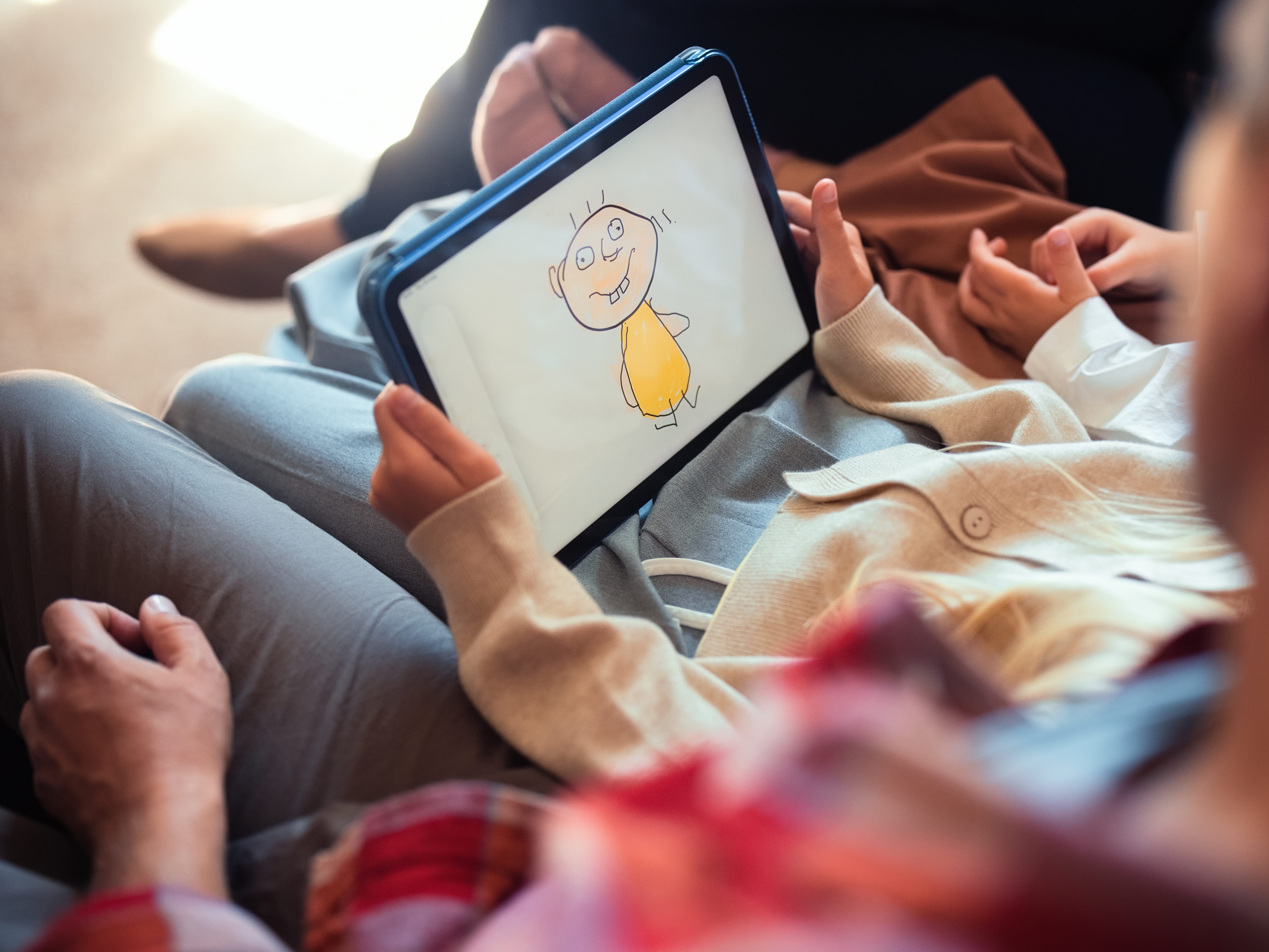
FreshSplash/Getty Images
- As I was building my career, I was stretched thin, so I turned to tech to keep my kids entertained.
- I started to realize my kids were relying too much on technology instead of connection.
- I now prioritize family time and make sure I’m more present and intentional with my time.
I thought I was doing the right thing, using technology as part of my parenting.
With two kids, multiple international moves, and a full-time job that never really turned off, I was always busy. I was juggling deadlines, leadership roles, and daily logistics. I was living in survival mode.
Like many parents, I leaned on screens to babysit my children. Sometimes, it was an app that helped them learn. Other times, it was a show that gave me just enough time to answer an email or finish a call.
It felt like a win-win: My kids were entertained (even learning), and I could stay afloat.
But then I started to notice what was changing — not just in them but in me, too. They didn’t ask to play together as much. They reached for devices before a conversation. One day, I looked over and saw both my girls, side-by-side, zoned out on devices, and something in me broke.
This wasn’t just a habit. It was becoming our norm.
The subtle cost of overstimulation
My daughters grew more impatient as they grew up. Boredom became intolerable.
Car rides, waiting rooms, and even short pauses brought the same plea: “Can I have your phone?”
What they craved wasn’t just a screen; it was stimulation. Constant, effortless, on-demand.
I saw it in myself, too. Between calls, I’d scroll. At night, I’d swipe. I was using tech the same way to soothe, to escape, to fill the space.
This wasn’t bad parenting or bad tech. It was what we’d normalized in the name of survival.
I felt low-grade guilt. I was doing my best, but I was also on autopilot, performing for everyone and everything around me.
In the process, I was unintentionally modeling the very thing I wanted to protect my kids from: distraction, overwhelm, and absence masked as presence.
We started to make small shifts at home
My daughters and I didn’t do a tech detox. We just started being more intentional.
In the car, we played alphabet games. At dinner, we talked. Some days, we painted. On other occasions, we watched movies together —no second screens playing and no scrolling.
The goal wasn’t perfection. It was about being present with each other.
I now see that we can’t raise connected kids if we’re disconnected ourselves. For me, that shift started with my own attention, habits, and modeling.
I had to shift what I believed made a good parent
I used to think my greatest gift to my daughters was showing them how much a woman could achieve.
Now, I believe it’s also showing them what it means to be present, to slow down, look someone in the eyes, listen fully, and choose connection over convenience.
That’s not a passive legacy. That’s an active, intentional one. And in a world that rewards performance over presence, it takes awareness and courage to build it.
But small changes can create a big shift.
I now implement 4 screen-time rules at home
First, I take notice of our defaults: If screens are our first response to boredom (mine or my kids’), I ask why. Get curious, not critical.
I then prioritize real connection over consumption. I often now ask my kids deeper questions like: “What made you smile today?”
I also brought back simple rituals, like storytime, board games — small moments, shared with intention.
Lastly, I make sure I’m available to my kids. I remind myself that they don’t need me to be perfect. They just need me — undistracted, even for just a few minutes a day.
In chasing success, I thought I was giving them everything. Now, I know, the real legacy isn’t what we build. It’s how present we are for the people we love most.
Read the original article on Business Insider
The post When I was building my career, I relied on technology to keep my kids company. I realized I was losing them. appeared first on Business Insider.




